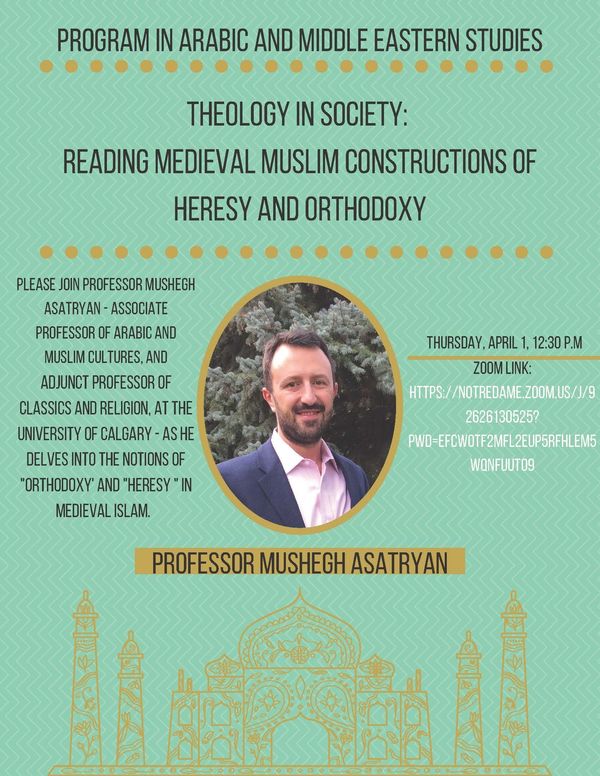Mushegh Asatryan (PhD Yale) is Associate Professor of Arabic and Muslim Cultures, and Adjunct Professor of Classics and Religion, at the University of Calgary. He has published on the history of early Muslim sectarianism, Shi'ism and religious polemics in the Abbasid empire. His current projects include a monograph on Muslim constructions of heresy and orthodoxy (funded by the Zahid Ali Fellowship, IIS), a critical edition and a study of a major theological work (with David Hollenberg, funded by NEH), and a study and translation of 10th-c. Muʿtazilī theologian al-Khayyat's Kitab al-Intisar. Another of Mushegh Asatryan's interests is the history of the discipline of Islamic Studies in Euro-American academia, and he is currently preparing a study of the uses of philology and theory in writings on premodern Islam.
Abstract
Was medieval Muslim theology disembodied thought on matters sublime, or was it informed by the mundane vagaries of politics and power? Are the notions of “orthodoxy” and “heresy” applicable to medieval Islam, or are they artificial importations from the history of Christianity? The talk will address these and other questions by offering a close reading of three near-contemporary polemical texts from 10th-century Iraq, which directly or indirectly engage with one another's teachings. The texts are deliberately chosen so as to highlight how power and prestige (or their lack) informed the way Muslim theologians wrote and argued. Thus one of the texts is composed by a pugnacious Muʿtazilite, who pulls no punches in lashing out against his opponents and painting them as ignorant fools or heretics; a cautious Ismaili, who tries to veil his polemics behind the image of a highly cultured litterateur; and the representative of a group maligned as godless perverts, who goes out of his way to redescribe the heretical beliefs attributed to them, so as to make them more mainstream-looking and palatable to the orthodox-minded. Broadly speaking, the talk is an argument for, and a case-study in, a socially situated reading of Muslim theological literature.
